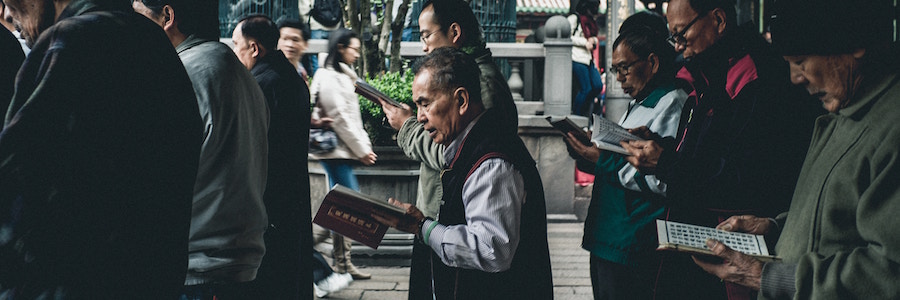
54% of the world’s current population lives in urban areas, and it is within these cities where we confront social, environmental, and economic issues. Recently the proliferation of smart city projects around the world has led to an increase in discourse regarding the issue of smart citizenship. Rapid urbanization and industrialization have given rise to problems such as environmental pollution and traffic congestion, urging the demand for urban regeneration.
A Smart Society Requires Actively Engaged Citizens
Participation in lifelong learning reinforces the capabilities of individual citizens and ultimately leads to the motivation of making positive changes in their local community. In South Korea, the Comprehensive Plan for the Promotion of Lifelong Education was established and implemented at the national level with the objective of enabling any citizen to participate in lifelong learning. In the plan, the focus of lifelong learning city project was to establish local education support systems and encourage residents who participate in lifelong learning programs to revitalize their local communities.
Lifting Up the Community
Instead of seeking to enact change via policies stemming from national and local government, it is the citizens that take initiative and come up with solutions to often complex problems arising from cities. At the Han Riverside Park in Seoul, residents collaborated with transportation experts and businesses to install safety lights to reduce night-time cycle accidents. This is one of many examples of smart city changes that have been taking place within South Korea.
Local citizens can be supported by a consumer-centered approach from the government, establishing effective civil and administrative governance, fostering a citizen-led culture of innovation and by sharing and utilizing urban data. This will require, above all else, the preparation of an open platform wherein citizens can participate in a process of bottom-up decision making.
Study Circles for Gaining Practical Experience
In a smart society individuals become the agents of change, taking direct responsibility for identifying, resolving and disseminating information. Study circles can provide opportunities for citizens to put their learning into practice and to contribute to the formation of learning community networks. Study circles are small groups of approximately ten people who voluntarily meet on a regular basis to study together and discuss about topics of mutual interest. The study circle can contribute to the establishment of a learning community as it helps the local residents play a role as local leaders, whilst learning and growing together. Some examples of this include the Vertical Alley Revitalization Project and the Busan West District Regeneration Project in South Korea.
- “Vertical Alley Revitalization Project: Elevators, Alleys Connecting Citizens’ Learning”, Seodaemun District, Lifelong Learning City: This project aimed to turn insignificant shared spaces, such as neighborhood alleys, into spaces where residents of Seodaemun District could have meaningful interactions with each other. Citizens could propose their own ideas and develop their own lessons with the assistance of the Seodaemun District Office. With residents participating as both learners and teachers, apartment buildings that were once devoid of communication were seeing the beginnings of interpersonal communication, resolving the issues that affect local communities. Citizens were also taking the knowledge that they acquired to commodify and earn money. In an age when single-person households are on the rise, this project utilizes the urban learning community to connect households and raise social capital.
- “Busan West District Regeneration Project”: This village regeneration program was tasked with the restoration of learning communities, such as expanding support for study circles and activities related to the production of village fairy-tale books, food donations, and village storytelling. Community problems were beginning to be resolved due to increased civic participation in a wide range of study circles – such as ‘house repairs in areas of underdeveloped housing’, ‘telling the stories of our neighborhood’, and ‘cultivating a community vegetable garden’. In essence, study circles facilitate the realization of a spectrum of lifelong learning.
Lifelong learning contributes to the values of publicness and transparency that is intrinsic to civic awareness, and contributes to the promotion of trust, tolerance, solidarity and participation, which are essential for the advancement of civic competence. It is necessary to support the establishment of learning communities as a universal cultural aspect of daily life.
Source:
1 160 of the 227 local governments in South Korea are implementing the project of lifelong learning city. The mean increase rate of the number of study circles (9.35%) in these lifelong learning cities is significantly larger compared to the rate (2.34%) in other cities.


